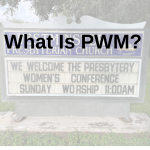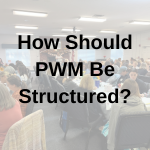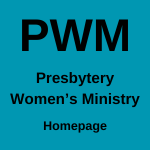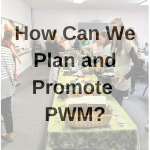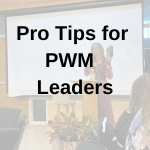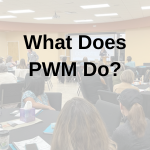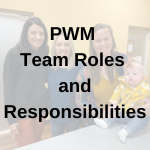
Why is PWM Important?
PWM is vital to PCA Women’s Ministry as it serves to:
Connect
- PWM serves as a hinge between PCA Women’s Ministry and the local churches, keeping local churches connected, informed and engaged with PCA resources.
- PWM connects local churches to one another within that presbytery. Each presbytery is defined by unique cultural and ministry dynamics. PWM serves to facilitate and contextualize PCA resources to effectively minister to the women in that presbytery.
- PWM provides prayer connection and support. As relationships grow among the local women’s ministries within the presbytery, requests can be shared, and women are encouraged to pray for one another and upcoming events. PWM can encourage and unite women throughout the presbytery to pray for and support the specific PCA committee or agency assigned to their region each year at Leadership Training (LT).
Encourage
- PWM serves as a reminder that we are a part of something bigger than ourselves. It’s easy to become “myopic” or isolated in local ministry. PWM reminds us that we are connected, share a common struggle, and that denominational support and resources are accessible and available.
- PWM provides opportunities for local churches to learn from and encourage one another. As churches in that presbytery share ideas and resources, women are spurred on in ministry, and discover new ideas to utilize in their local women’s ministries.
Equip
- PWM provides the opportunity for shared conferences with teaching and training that might not be accessible through an individual church.
- PWM is a platform for local women to utilize their gifts of teaching and training women.
- PWM mentors local ministries by modeling team-based servant leadership and caring for the covenant community.
Serving on a Presbytery Women’s Ministry Team is an incredible opportunity to gain an appreciation for the story and characteristics that make up each local church. Rotating events around to different geographic locations, to churches of different sizes, and to churches with longer and shorter histories, can help those who attend gain an appreciation for the other churches in the presbytery. These connectional interactions encourage and equip us to be more effective members within our own local church body.

